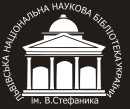DOI: https://doi.org/10.37222/2524-0331-2019-9(27)-18
Stiekolshchikova Valentyna
The idea and thematic exegetics of investigative texts via a prism of the concept of proximity
Abstract:
The genre of investigative journalism is a kind of indicator that measures the state of free speech in society. Today, investigative journalism is compared with the highest professional skill. Investigation offers an author’s version of events based on search results, questions, facts. The investigator looks for a theme, collects facts to accuse, but not so much as for the accusation of a particular person, as in the hope to solve a particular social problem. However, the problem of ideological-thematic exegetics of investigating activity in the context of proximity concept is yet little studied. The article aims to investigate the ideological-thematic basis of regional journalistic investigation via a prism of the proximity concept, outlining elements, structure, and factors of efficiency of investigative texts. Contextual analysis, elements of component analysis, methods of intertextual comparison, and conceptual analysis, linguistic modeling contributed to distinguishing and systemic characterizing of the informational dossier tools. In the paper, the exegetics (hermeneutics) of investigation texts in the context of the proximity concept is presented, and the main algorithms for avoiding the inefficiency of this concept in the journalistic investigation are defined. Besides, the main thematic areas of the investigative activities of the Southern Ukraine regional media are analyzed. The findings of the research using our methods of the experimental and practical social triad by applying the themes and ideas of stirring up the journalistic investigations’ readers were used in the paper. The main principle in the activity of a journalist working on the definition of the thematic, problematic, ideological conceptualization of the region, state, and the abroad, is publicity, creating of the appropriate atmosphere, public opinion concerning certain social phenomena. The main thing to focus on is the competence in the subject matter or problem that has become the matter of interest in the investigation. The regional journalistic investigation, unlike other space-and-time research themes, is specific to increase the number of readers, build and effectively represent the modeled reality.
Keywords: idea and theme exegetics, investigative text, proximity, experimental and practical social triad, readers’ stirring up.
References:
- Hlushko, O. K. (2008). Zhurnalistske rozsliduvannia: istoriia, teoriia, praktyka, Kyiv, Aristei, 144 pp. (in Ukr.).
- Batayeva, K. V. (2017). Sotsialna vizualistyka i media-vizualnist, Kyiv, Kondor, 344 pp.(in Ukr.).
- (2010). Zhurnalistika i konvergencija: pochemu i kak tradicionnye SMI prevrashhajutsja v multimedijnye, pod red. A. G. Kachkaevoi, Moskva, Fokus-Media, 200 pp. (in Rus).
- Kolisnichenko, A. V. (2013). Nastolnaya kniga zhurnalista, Moskva, Aspekt Press, 334 pp. (in Rus).
- Paslavskyi, I. (2009). Zhurnalistske rozsliduvannia. Publikatsiia rezonansna, ale nebezdohanna, Visnyk lvivskoho univrsytetu. Seriia Zhurnalistyka, no. 32, p. 223—230. (in Ukr.).
- Tertichnyi, A. A. (2002). Rassledovatelskaya zhurnalistika, Moskva, Aspekt Press, 384 pp. (in Rus).
- Uillmen, Dzh. (1998). Zhurnalistskoe rassledovanie, Moskva, Aspekt Press, pp. 10—12.(in Rus).
- (2016). Universalnaja zhurnalistika, pod red. L. P. Shesterkinoi, Moskva, Aspekt Press, 480 pp. (in Rus).
- Retrieved from http://rp.mk.ua/category/investigation/.
- Retrieved from http://nikcenter.org/inquests.
